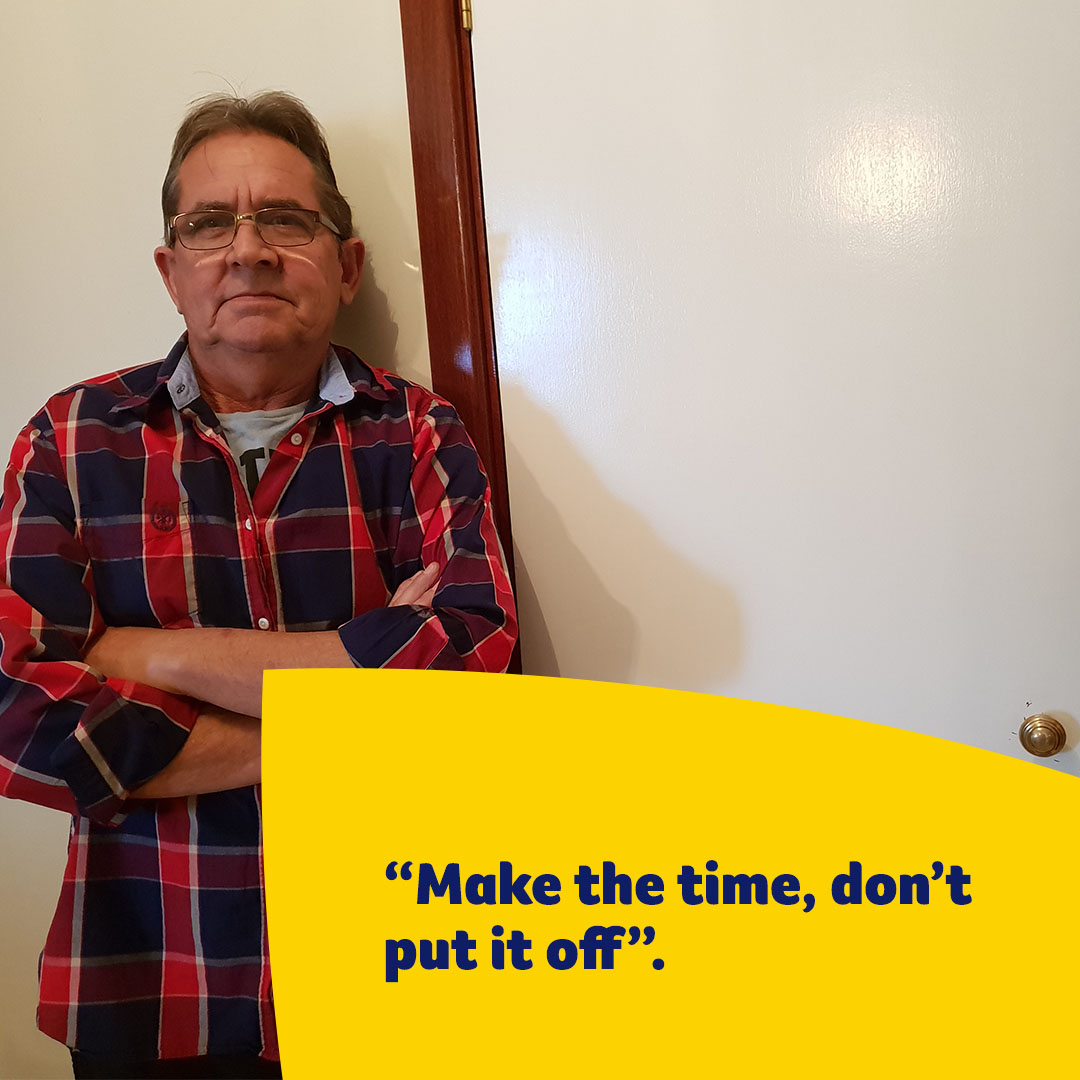Prostate cancer champion
If you notice an unusual symptom, make the time to see your doctor. If you’re not happy with their advice see another doctor, even if it means going to the next town.
Derek’s story
Painter and decorator Derek had noticed some unusual symptoms which included urgency to pee and needing to get up two or three times a night to pee. At first he dismissed the symptoms as being a normal part of ageing and it wasn’t until he coughed up blood^ that he made an appointment to see his GP about his symptoms. To his surprise, his doctor identified he had gallstones and Derek underwent the necessary procedures.
Once he’d recovered, he noticed his problems relating to peeing continued so he made an appointment to see his GP. As a result of his symptoms, Derek’s GP ordered a prostate specific antigen (PSA) test and later a biopsy was taken to confirm a prostate cancer diagnosis. He then underwent robotic surgery in 2018 to ‘remove the whole lot’.
In early 2019, Derek was given his 12 month clearance and now feels he can relax a little and enjoy celebrating his upcoming 60th birthday. Derek credits his family and his colleagues for their invaluable support throughout the journey.
Derek’s advice
‘Go get it checked out. If you’re not happy with what you’re told, go and get it checked out again. And if you’re still not happy, go and see another doctor’.
‘Get your check-ups. It’s so important. Make the time, don’t put it off’.
^ Coughing up blood is not a symptom of prostate cancer though it is a symptom of lung cancer. In this case, it seems this symptom was unrelated though fortunately prompted a series of crucial GP appointments.
Prostate specific antigen (PSA) test
The PSA test measures the levels of PSA found in the blood. Normally, PSA stays within the prostate. Blood levels of PSA increase if the prostate is damaged.
The current PSA test is not a suitable population screen test. Unfortunately, we don’t have reliable medical proof that routine population testing does more benefit (increased prostate cancer survival) than harm (treating people who don’t need treatment and side effects of treatments).
Early detection of symptoms can significantly improve prostate cancer treatment. Men considering being tested for prostate cancer should do so with information on both the benefits and harms of testing and treatment. We encourage men to speak to their doctor, or phone the Cancer Council WA cancer nurses on 13 11 20, so that they can make an informed choice about PSA testing.
Men experiencing possible prostate cancer symptoms should tell their doctor, clinic nurse or Aboriginal health worker without delay.

